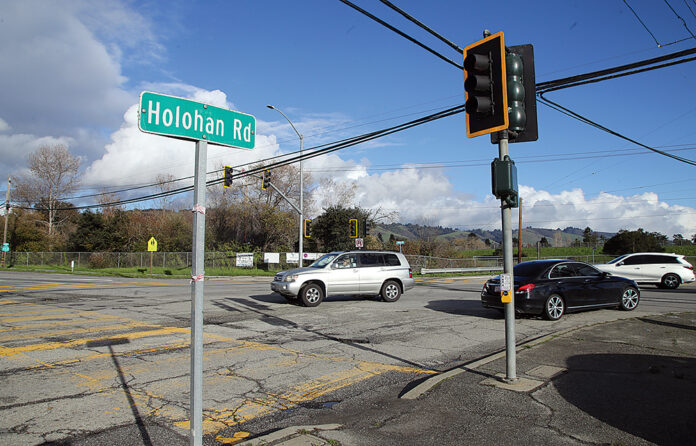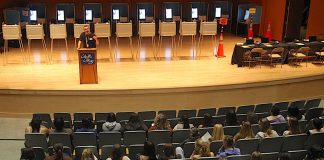
WATSONVILLE—In early December, the Santa Cruz County Board of Supervisors unanimously approved next year’s Capital Improvement Plan (CIP), a 188-page list of projects the county hopes to complete or move forward on over the next five years.
The $966 million plan includes upgrades to various roads, parks, sewers, libraries, landfills, trails and drainage and sanitation facilities throughout the county. It also features the construction of new county facilities.
Counties use CIPs as planning documents, which are updated annually to coordinate the timing and financing of projects they hope to complete over a multi-year period.
Included in the CIP are two multi-million dollar projects that will have a major impact on the Watsonville community.
New Path
The busy intersection of Holohan Road and East Lake Avenue, which bottlenecks heavy vehicle and pedestrian traffic—including from a nearby school—is the scene of frequent backups and collisions.
A $4.3 million project that will completely reimage the intersection has been fully funded through a combination of local, state and federal road funds, says Ramon Gomez, an analyst for Santa Cruz County 4th District Supervisor Greg Caput.
It will add a left-turn lane and a merge lane from Holohan Road onto East Lake Avenue, extend the existing right turn lane from Holohan onto East Lake and make improvements to bike safety, which would benefit students from nearby Lakeview Middle School.
Also included is an additional crosswalk in all four directions and several new sidewalks. Holohan Road from Green Valley Road to East Lake Avenue will also be resurfaced.
“We’ve been working on it for quite some time, and we’ve finally got it fully funded,” Gomez said. “We are glad it’s finally coming to fruition.”
Caput, who has long advocated for improvements at the intersection, says that the project will improve traffic safety, and eliminate congestion.
To make the project possible, the county had to acquire several pieces of property, including from Pajaro Valley Unified School District, the Quick Stop gas station and the nearby shopping center.
The project took longer than expected to get off the ground, Caput says, because county officials wanted to negotiate with property owners rather than take the land through eminent domain.
Helping Children
Currently, children experiencing mental health crises such as depression or suicidal thoughts go to the county’s mental health facility, which is co-located with the adult program. If county officials can secure the estimated $20 million needed for a Behavioral Health Children’s Crisis Program, a new facility for children and adolescents will be built at the Santa Cruz Health Services Agency’s Freedom Boulevard Campus.
This two-story facility would include an 8-bed Crisis Stabilization Center, as well as a 16-bed residential crisis program, where patients would receive intensive therapy and the possibility of remote education through their school. Officials also hope to include a partial hospital wing.
There, young people would be evaluated to determine whether they can return home or be taken into the inpatient center. This can be a benefit for some families hoping to care for their children, says Santa Cruz County Behavioral Health Director Erik Riera.
“We know from past experience, if we can intervene early we can avoid having to hospitalize a child,” he said. “This is something our families have been asking for for a long time.”
Riera says he visualizes a warm and welcoming space for young people and their family members.
Other counties such as Monterey—which lacks a similar facility—would also use the one here, providing a separate funding source, Riera says.
The county submitted a grant in October to the California Health Affiliates Finance Authority to cover the cost of construction. Riera says he expects an answer in January.
“It feels like a win-win, and we’re keeping our fingers crossed that we can find the funding for it,” he said.










